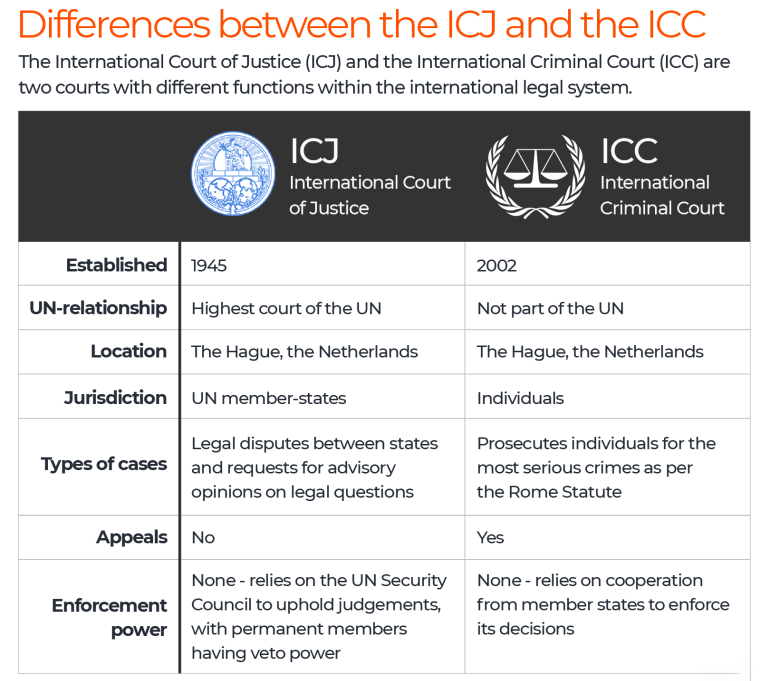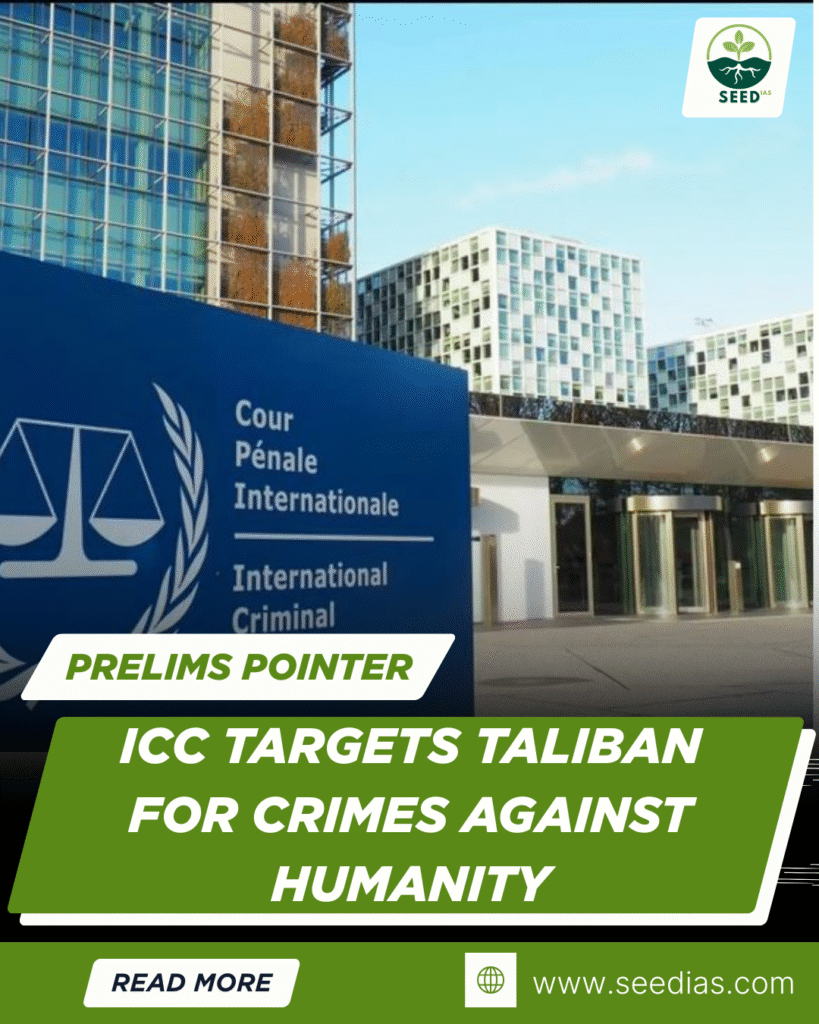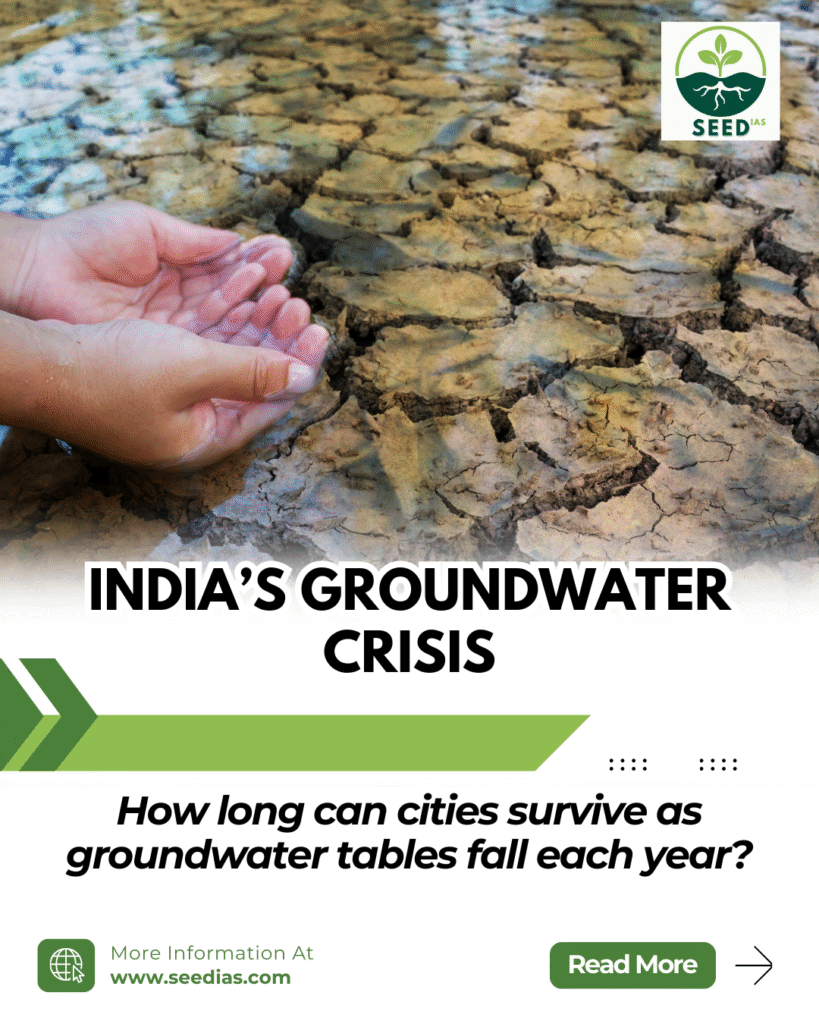Why in NEWS
The International Criminal Court (ICC) has issued arrest warrants against Taliban leaders under Article 7(1)(h) of the Rome Statute, citing crimes against humanity—specifically systematic gender and political persecution in Afghanistan.
Key Concepts & Definitions
| Term | Definition |
|---|---|
| ICC | International Criminal Court – a permanent court to prosecute individuals for grave international crimes |
| Rome Statute | Founding treaty of the ICC, adopted in 1998 and enforced in 2002 |
| Article 7(1)(h) | Provision under Rome Statute concerning persecution against identifiable groups (political, gender-based, etc.) |
| Crimes Against Humanity | Widespread or systematic attack on civilians (includes murder, rape, persecution, etc.) |
What is the International Criminal Court (ICC)?
| Aspect | Details |
|---|---|
| Establishment | 2002, under Rome Statute adopted in 1998 |
| Headquarters | The Hague, Netherlands |
| Jurisdiction | Crimes after 1 July 2002 in member states or referred by UN Security Council |
| Crimes Covered | Genocide, Crimes against Humanity, War Crimes, Crime of Aggression |
| Who is Prosecuted? | Individuals, not states or governments |
Jurisdiction and Authority
| Criteria | Description |
|---|---|
| Member States | ICC has jurisdiction over 125 ratified member countries |
| Non-Members | Can be investigated if referred by UN Security Council |
| Complementarity Principle | ICC steps in only if national courts are unwilling or unable to prosecute |
| Afghanistan | Member since 2003; ICC has jurisdiction |
| India’s Position | Not a signatory; objects over sovereignty and UNSC’s discretionary referral powers |
Structure of ICC
| Organ | Function |
|---|---|
| Presidency | Administrative and external relations functions |
| Judicial Divisions | Pre-trial, trial, and appeals chambers |
| Office of the Prosecutor | Investigates and prosecutes crimes under ICC jurisdiction |
| Registry | Manages non-judicial aspects including outreach and support for victims |
| Assembly of States Parties (ASP) | Legislative body of the ICC composed of representatives from member states |

Limitations and Enforcement Challenges
| Issue | Details |
|---|---|
| No Police Force | ICC relies on member states to arrest and surrender individuals |
| Voluntary Cooperation | Enforces sentences and freezes assets only if countries cooperate |
| Limited Reach | Cannot act in countries that are not signatories unless referred by the UNSC |
In a Nutshell
Mnemonic: JAWS-P
- Jurisdiction over 4 core crimes
- Acts only if national systems fail
- Warrants against individuals, not states
- Structure: 4 organs + Assembly
- Powers limited by lack of enforcement machinery
Prelims Practice Questions
- Which of the following is not a crime under the jurisdiction of the ICC?
A. Genocide
B. Money Laundering
C. War Crimes
D. Crimes Against Humanity - Which of the following countries is not a member of the International Criminal Court?
A. France
B. Afghanistan
C. India
D. Brazil - What is the key condition under which the ICC can exercise jurisdiction in a non-member country?
A. Approval by World Bank
B. Recommendation by Human Rights Council
C. Referral by the UN Security Council
D. Agreement from NATO
Prelims Answer Key with Explanation
| Q. No | Answer | Explanation |
|---|---|---|
| 1 | B | Money laundering is not under ICC jurisdiction |
| 2 | C | India has not ratified the Rome Statute |
| 3 | C | The ICC can act in non-member states if referred by the UN Security Council |














